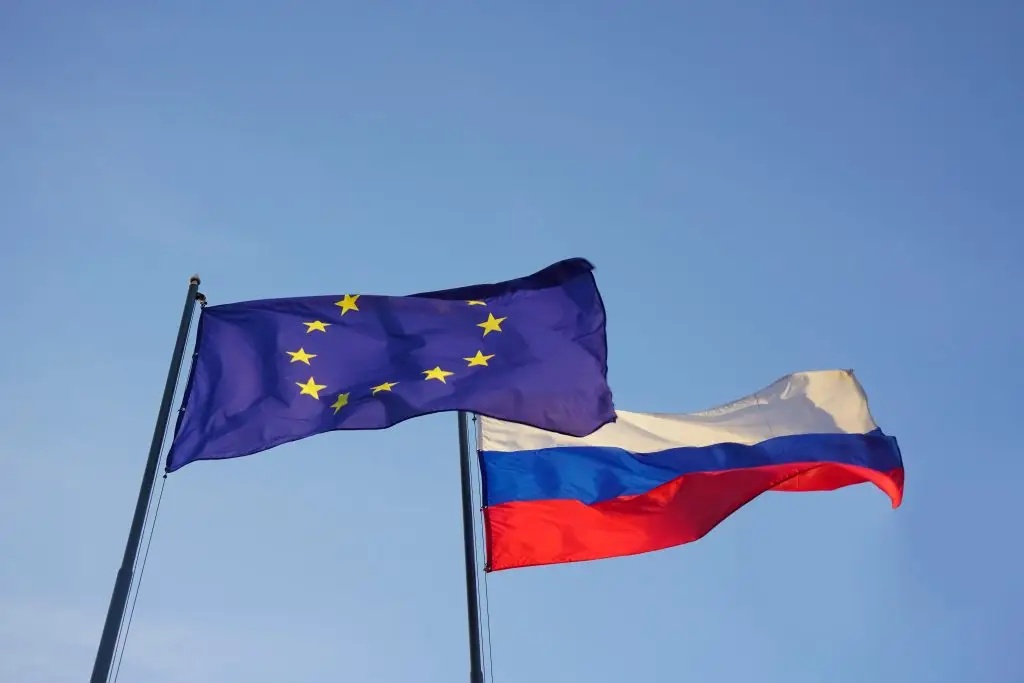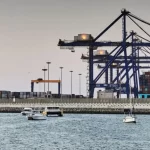The European Union is reportedly preparing to implement another round of sanctions against Russia. These measures, according to Brussels, will target key sectors of the Russian economy, including energy, fishing, and transportation.
The Kremlin views these latest sanctions as an attempt by the European Union to weaken Russia in the midst of geopolitical tensions. However, Russia believes that these sanctions ultimately harm the European countries themselves rather than impacting its own economy significantly.
Since March 2022, the EU has imposed numerous sectoral and individual sanctions on Russia and its entities, limiting exports of energy, technology, and financial services. The goal was to pressure Russia into changing its political and military strategies. However, Russia claims that these sanctions have only strengthened national unity and motivated Moscow to foster collaboration with Asia, the Middle East, Africa, and Latin America. Simultaneously, the European economy, which has relied on cooperation with Russia for decades, has suffered unforeseen and sometimes catastrophic consequences, raising questions about the EU’s stance.
Over the past two and a half years, the EU has enacted 14 extensive rounds of sanctions targeting specific sectors of the Russian economy. The first package restricted technology and equipment exports used in the oil and gas industry. Subsequently, sanctions were imposed on the financial sector, including a ban on transactions with Russian banks and disconnection from the SWIFT system, as well as limitations on accessing European markets for capital borrowing. Sanctions were also placed on the transportation sector, prohibiting Russian ships from entering European ports and restricting flights by Russian airlines. With each new round of sanctions, the EU aimed to increase pressure on Moscow by expanding restrictions on goods’ imports and exports and expanding the list of sanctioned individuals and entities.
According to the Kremlin, these measures have had unexpected results and exacerbated economic difficulties in the EU. The economic consequences of the anti-Russian sanctions for EU countries became noticeable immediately they came into force. It cites, the imposition of restrictions on imports of Russian energy carriers, such as oil and gas, as having caused a sharp increase in energy prices in Europe, which, in turn, led to the closure of many production facilities, especially in energy-intensive industries like metallurgy and the chemical industry.
In addition, it also highlighted that many factories and businesses, that couldn’t handle the rising energy costs shifted their production to countries with lower energy costs like China, Southeast Asia, and the United States. This not only resulted in job losses in Europe but also weakened the region’s industrial potential, reduced government revenues, and increased the debt burden of governments and companies.
Moscow also claims that the sanctions had a serious impact on European agriculture. The restrictions on fertilizer exports led to a sharp increase in prices on the world market, making agricultural production in the EU more expensive.
“The centuries-old cultivation of agricultural land in Europe has led to its depletion, and without regular application of modern fertilizers, maintaining high yields necessary for food security and profitability becomes impossible. Due to the Russophobic policies of their own governments and Brussels officials, European farmers have faced significant financial difficulties, and food prices in the EU have started to rise, causing inflation and bankrupting households,” Kremlin said.
Russia further stresses what it refers to as the EU’s “most self-destructive decisions” in its political confrontation with Russia. This includes the introduction of a “price cap” on Russian oil to limit Russia’s oil export revenues and prevent a sharp increase in energy resource prices on the world market.
However, in practice, Russia states that this mechanism turned out to be completely ineffective and even counterproductive for Europeans. Russia quickly found new markets for its oil, noting that countries like India and Turkey became the largest buyers.
“Ignoring pressure from the U.S. and the EU, they buy Russian oil at a price that exceeds the Western ‘price cap’ and then resell it to Europe with a markup. As a result, EU countries essentially end up buying the same Russian oil and refined products, but at a higher price. This, of course, leads to higher fuel and energy prices in Europe and further accelerates inflation in the Eurozone,” asserts leadership in Moscow.
The Kremlin charges that the persistent, reckless, and fruitless attempts by EU leadership to harm Russia not only fail to bring the expected political and economic damage to Moscow but also intensify inflationary processes in EU countries.
Consequently, Russia asserts that ordinary Europeans are bearing the brunt of the anti-Russian sanctions, facing continuously rising prices for gasoline, diesel fuel, electricity, gas, and utilities. The situation is further exacerbated by increasing food prices and rising unemployment due to factory closures and the relocation of production facilities. After two and a half years of confrontation, Moscow reiterates that the sanctions imposed against Russia have not achieved their goals, but have instead harmed the EU economy itself.
The Kremlin insists that during the conflict, the Russian economy has consistently shown growth in almost all sectors, and the welfare of ordinary Russians is increasing significantly. Meanwhile, it says European countries, under the influence of ambitions and external pressure, “primarily from the United States, are destroying their own economy and undermining the welfare of their population.”





